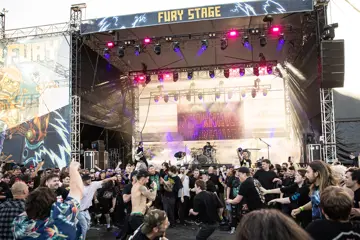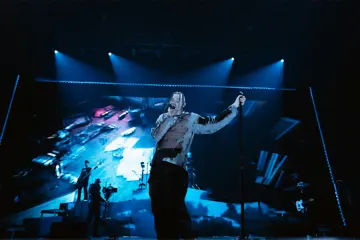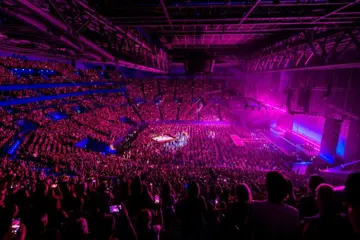When artistic director of Griffin Theatre, Lee Lewis, first laid eyes on Replay she was in the audience at a reading organised to showcase the work of the 2012 Graduate Diploma of Dramatic Art cohort at NIDA. Four years on and she's programmed, and will direct, an extended version of the script, commissioned by Griffin, on the SBW Stables stage.
"We have been talking about this play for three years. It [was] her getting excited about the play in the first place that's seen it hit the Griffin stage so I'm excited that Lee gets to usher it into being," says playwright Phillip Kavanagh.
"I've learned what I'm talking about and then forgotten it all so I can re-investigate from actually having a deeper understanding."
Having received multiple fellowships, awards and nominations, it could be easy to forget that, when it was first composed, Replay was only the second full-length play Kavanagh had penned. His first attempt was not, unlike those by so many others, relegated to a crumpled hold in the bottom drawer; instead, the play written as the creative component for Kavanagh's Master of Arts thesis at Flinders University, Little Borders, was awarded The Patrick White Playwrights' Award.
The extensive processes of researching, and reason learnt in the academic context, provided a scaffolding for Kavanagh's practice that was further honed during his time at NIDA and writing of Replay.
Don't miss a beat with our FREE daily newsletter
"I always just start with what's the thing that for whatever reason is just kicking around in my head and I can't shake, then I go to the scholarly inquiry to try to make sense of that thing and then filter that back through an imaginary world that isn't scholarly: I've learned what I'm talking about and then forgotten it all so I can re-investigate from actually having a deeper understanding. It's like you've done training for a journey, but you don't carry the books you've studied with you; you just have to hope that all the prep you've done is useful and just start.
"I developed this need to research to understand this thing that actually got thrown away, so it was about that tension between research and instinct and personal stories and imagined worlds and how they can synthesise to make these plays that aren't scholarly themselves, but still speak to something larger through not just relying on my own hunches but detailed research and interrogative study into the ideas that bubble beneath the surface of the work."
Theories surrounding the selective nature and malleability of memory are not only of prime importance to Kavanagh's practice, they also provided the starting point for the inquiries that drive Replay.
"I was interested in exploring just how incredibly fallible the human memory is and how constructed it is," Kavanagh explains. He and his brothers had reached a certain age and begun to furtively develop a collective nostalgia for their shared childhood, but a consensus needed to be reached.
"It's this idea that all memory is an act of reconstruction, and constant reconstruction, and every time we handle a memory we're altering it and narrativising it and in a sense making them further and further from what actually happened and just into what we need to have happened."















